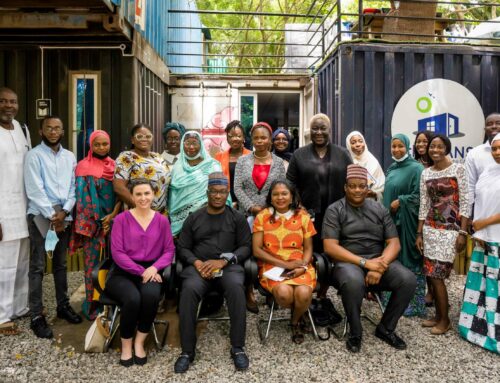There have been multiple challenges to launching a business in Nigeria, not the least of which involve staffing. How do you find the right people for the right jobs? How can you be assured they are competent and trustworthy? Those are the key questions I have faced while co-founding three social ventures — eHealth Africa (in 2010), EHA Clinics (in 2018) and eha Impact Ventures (in January 2021).
The latter venture involves a commitment to building the nation’s impact investing ecosystem, with a particular emphasis on supporting female-owned small and medium-sized enterprises. As with the first two companies I co-founded, there are also challenges revolving around infrastructure, security and corruption. But human resources is an enormous piece of the puzzle, to be sure.
A piece in The Guardian offered six crucial steps to hiring the right people:
- Establishing a clear vision: As a business leader, it is incumbent upon you to define the direction of your business. Your recruiting policies should be clear, your culture entrenched and the staffing budget adequate to attract the kind of talent that is needed to propel your business forward.
- Seek agile, forward-thinking staffers: The business world, like the world at large, is forever changing, especially when it comes to technology. That being the case, it is vital to bring aboard employees who can adapt with the times, thereby ensuring that your company remains relevant for the long haul.
- Make your expectations clear: Spell things out for potential hires. Make sure they understand, whether through your announcement or face-to-face interactions, exactly what you want from them. In addition, make clear who will be on their team, who they will be reporting to, etc. Leaving anything to chance results in guesswork and inefficiency.
- Put candidates to the test: It is one thing to read a resume, quite another to have an understanding of how a potential employee might react to a real-life situation. As a result, it is not unreasonable to ask hypothetical questions about how a candidate might handle day-to-day challenges.
- Value soft skills: Emotional intelligence — possessing traits like self-awareness, self-management, social awareness and relationship management — is invaluable in this day and age, as it makes for better teammates, better problem-solvers, better communicators and, ultimately, better companies.
- Spell out salary, benefits, etc.: That means not only coming to an agreement on all those issues, but making clear what deductions will be made from any given paycheck, and how great those deductions might be. The fewer surprises there are, the less disillusionment there will be.
Even given all that, there are times when a business leader has to rely on his or her gut. I know I have done that during the hiring process, and it has served me well. I find myself looking at a potential hire and asking myself whether they will be dependable and trustworthy, and more often than not my instinct proves correct.
FBI agents actually have this down to a science, noting that certain gestures on the part of interview subjects can be signs of nervousness or deception. It is a matter of noticing what motions might be typical of a given person, then observing deviations. There are other telltale signs, like how someone talks or even walks.
If these things are valuable in solving a crime, they have no less value in fleshing out a staff. And obviously that has long-term ramifications, in terms of cohesion, collaboration and productivity.





Leave A Comment